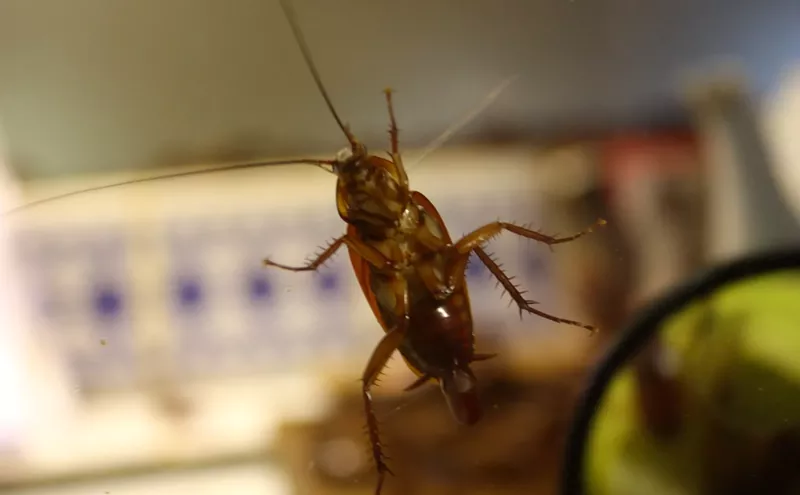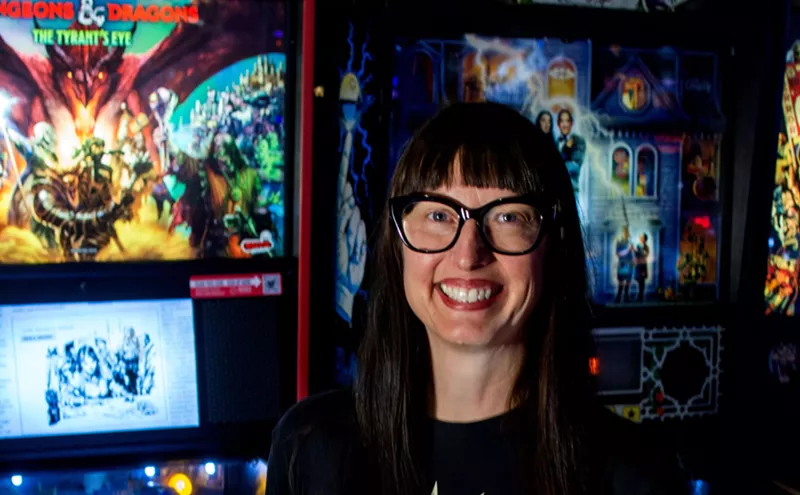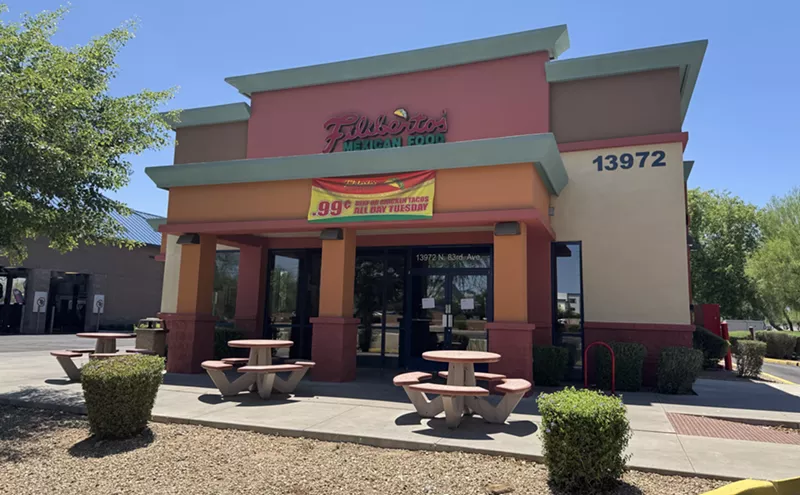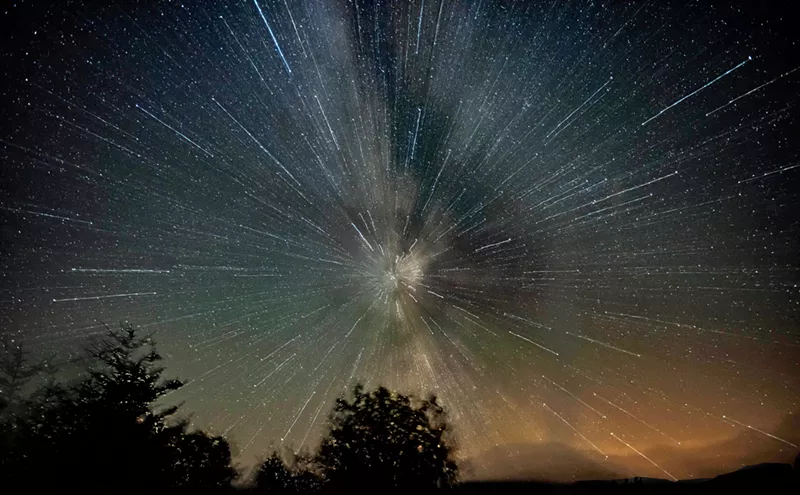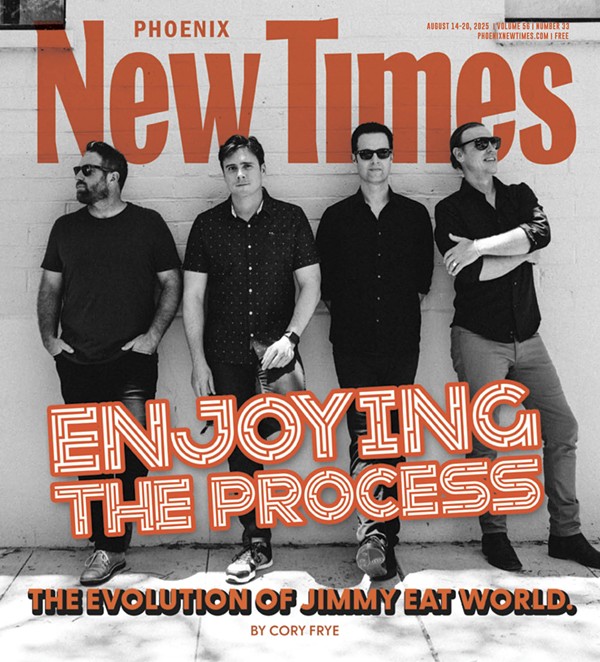Time and again, the brooding scientist burst through his clothes on his way to becoming a house-sized bundle of green muscle, popping through shoes and socks and ripping away his shirt (you'd think the man would eventually learn to wear really baggy stuff made of Lycra) but his pants had an uncanny knack for staying firmly on the Hulk's mighty loins.
On the other hand, maybe that's where all the big guy's aggression was coming from: skivvies 10 sizes too small.
Thomas had another theory. "It's testosterone, that's all I kept thinking," the art gallery owner said after the film, pondering the source of the Hulk's rage. "The whole movie they talked about DNA. But I wondered, when are they going to talk about testosterone?"
She wasn't kidding about the part about DNA. If you've ever wondered what it might be like to audit a bioengineering class at your local college, save yourself the registration fees and head to The Hulk. From the first moment, you'll be taken on an extended tour of the nucleic molecule and the implications of tinkering with it in the name of progress. So much so, you could almost hear the action-flick fans in the theater tapping their fingers and wondering, "When's the big green dude gonna show up and smash stuff?"
But Thomas didn't mind the long non-action sequences so much. Calling the movie "entertaining," she professed to enjoy director Ang Lee's dark, sulking mixture of comic book violence, mad science, deep philosophizing, and father-son mythmaking.
"It was very Greek tragedy," said the owner of Studio LoDo, a downtown art gallery that lies in the shadow of America West Arena.
Just 31, Thomas is already on her third job running an art studio, and this time it's her own. She'd started out in her native Tennessee in the medical field, but got fed up with that kind of work after two years in an emergency room. Switching to a focus in art, she completed a degree in sculpting and then came to Arizona, where her parents live, and was offered a job overseeing a Scottsdale studio, The Cultural Exchange. That led to another director's job at another Scottsdale showplace, the Bentley Gallery. But by then, she says, she was ready to open her own place, and longed for the edgier feel of Phoenix's downtown art scene. (LoDo is short for "lower downtown," an appellation Thomas had hoped would catch on to describe the entire area -- until she realized that a part of Denver had already made the name famous. Oh well.)
"Modified Arts and Holga's had just got going. There was a much more real arts community down here," she says. "Downtown could handle the attitude" that comes with art-types on a mission. But on the other hand, she says, working with a bunch of local creative minds has its sideshow moments.
"So many of the artists I deal with are like comic book characters," she says. Watching the film, "I kept thinking about Colin, this artist. He kind of looks like the Hulk."
Not that the painter is 10 feet tall and green all over. But all the jumping, growling and out-of-control attitude? Colin to a tee, she says. But that just comes with being an artist, which, she points out, comes with a lot of expectations.
"People give you space to be a freak," she says.
Thomas herself, on the other hand, isn't freaky at all. Tall and attractive, she wore a black dress that was all business, and an attitude that matched. You got the feeling she was normally pretty harsh on movies and the people in them. Despite enjoying The Hulk, she managed to snipe about a few of the film's qualities. Lead actor Eric Bana, for example.
"He was a strange choice. Sometimes he was really good looking, other times he was kind of disgusting. He looked pasty and was really unattractive," Thomas said. "He had really bad pockmarks!" she then exclaimed, and we wondered why that was such a sin, especially for an Aussie actor who'd done such a convincing job sounding American. Who cared about his skin?
But Thomas pointed out that we weren't paying close enough attention. See, Bana's character, Bruce Banner, was the child of mad scientist David Banner, who had injected a dangerous brew of jellyfish DNA and starfish goo into his own veins to try and give himself the power of regeneration. The experiment hadn't seemed to do anything for the guy -- it sure didn't get rid of his bad 1960s mustache -- but he'd inadvertently passed on the genetic legacy to his newborn son, Bruce. Crazy dad is sort of pleased and horrified about that fact at the same time -- his son's a freak, but the kid's hereditary gift should give him a superior immune system and, who knows, maybe even the ability to regenerate a missing limb. But Dad disappears, and Bruce grows up not knowing that he's a walking Science Fair exhibit.
Still, Thomas points out, with his superior T-cells, you'd think the kid could have fended off adolescent acne and made it to adulthood with smooth skin.
Ruddy complexion and all, Bruce eventually unleashes the genetic power within himself by falling victim to a radiation accident. We know it's only a matter of time before he loses his temper and transforms into his Incredible alter ego. It was difficult not to smirk, however, when the Hulkster made his first appearance.
"A lot of the effects were pretty cheesy," Thomas said. "He just looked like a big cricket."
Cricket? It was hard to see anything insectlike about the Hulk. But Thomas admitted that when he slowed down enough to get a good look at him, the half-hero half-monster did seem very tactile and believable. "Close ups on his face were really good. They did a good job of capturing his humanity and emotion."
She was even more enthusiastic about the stunning moment when the Hulk realizes he can fly. Well, soar is probably more accurate, the result of massive leaps that seem to carry him about a county at a time through the Nevada desert. It's breathtaking. "Have you ever had that dream, of running and taking off into the air?" she asked. "I've had that dream."
She admitted there was something very satisfying seeing the computer-generated behemoth leap mountains in a single bound, and always land with the gentlest of thumps on fragile wild landscapes. For some reason, he managed to leave barely a footstep in pristine backcountry but his gait crushed city asphalt, Thomas pointed out. Was it a hidden environmentalist agenda? It was tough to tell in a film that seemed to have so many themes going on at the same time, including outdated cold war paranoia, anti-science juju and even a dash of anti-secularism (one of several villains is the godless "Atheon" corporation).
Thomas reserved her greatest scorn for the Hulk's evil dad, David Banner, who returns after his 30-year disappearance in the guise of Nick Nolte in bad need of a shave. She didn't think much of Nolte's acting; the disheveled dude is barely audible, whispering throughout the film. And his look is a bit much. "The make-up artists must have just looked at his mug shots," she quipped.
It turns out, however, that Nolte's DUI arrest for driving under the influence of GHB last year occurred just after shooting on the Hulk ended. So Nolte can't be given style points for having fun with his wild arrest look.
At least, in the film, he goes out in a blaze of glory. At least we think that's what happened. The Hulk ends in one of the most confusing, difficult-to-make-out computer generated finales we've ever seen, and Nolte's character just sort of disappears. With a court date fast approaching, Nolte'd no doubt like to pull the same trick.



